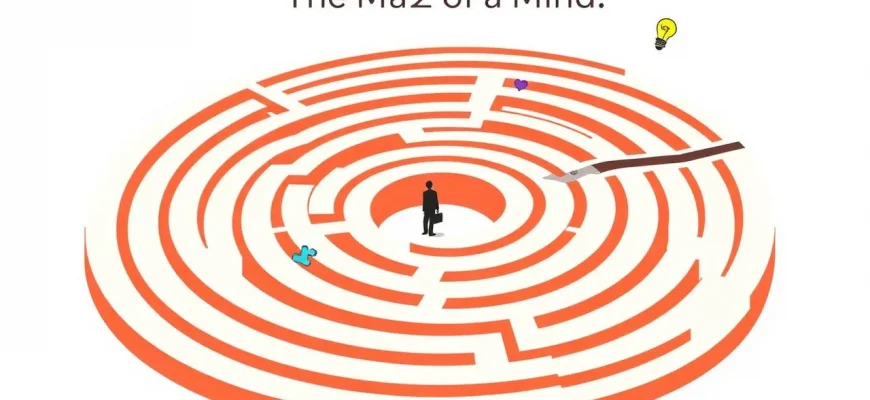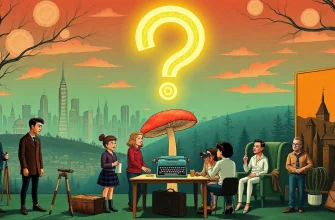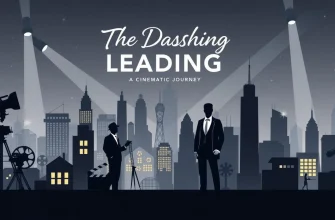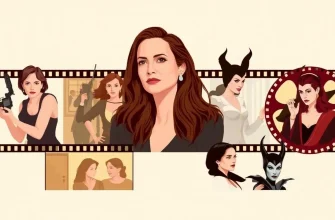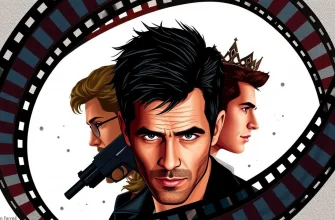This curated list of films delves into the intricate and often misunderstood world of mental disorders. Each movie provides a window into the lives of those affected by various psychological conditions, offering not only entertainment but also education and empathy. These films are valuable for anyone interested in understanding more about mental health, the challenges faced by individuals, and the societal perceptions surrounding these issues.

One Flew Over the Cuckoo's Nest (1975)
Description: This classic film examines the life inside a mental institution, focusing on the clash between the free-spirited Randle McMurphy and the oppressive Nurse Ratched, highlighting issues of control, freedom, and mental health.
Fact: It swept the five major Academy Awards: Best Picture, Best Actor (Jack Nicholson), Best Actress (Louise Fletcher), Best Director (Milos Forman), and Best Adapted Screenplay.
 Watch Now
Watch Now 
Rain Man (1988)
Description: This film introduces audiences to Raymond Babbitt, an autistic savant, and his relationship with his brother Charlie. It provides insight into autism spectrum disorder and the complexities of familial relationships.
Fact: Dustin Hoffman won an Academy Award for Best Actor for his role as Raymond.
 Watch Now
Watch Now 
A Beautiful Mind (2001)
Description: This film portrays the life of John Nash, a brilliant mathematician who struggles with schizophrenia. It showcases his journey from academic success to mental turmoil and eventual recovery, highlighting the impact of mental illness on personal and professional life.
Fact: The film was based on the Pulitzer Prize-winning book by Sylvia Nasar. Russell Crowe was nominated for an Academy Award for his portrayal of John Nash.
 Watch Now
Watch Now 
The Hours (2002)
Description: This film interweaves the lives of three women across different time periods, all connected by Virginia Woolf's novel "Mrs. Dalloway." It explores themes of depression, suicide, and the search for identity.
Fact: Nicole Kidman won an Academy Award for Best Actress for her portrayal of Virginia Woolf.
 Watch Now
Watch Now 
Black Swan (2010)
Description: Nina, a ballerina, experiences a psychological breakdown as she strives for perfection in her role. The film delves into themes of identity, obsession, and the pressures of artistic expression, showcasing symptoms akin to psychosis.
Fact: Natalie Portman won an Academy Award for Best Actress for her performance. The film was also nominated for Best Picture.
 Watch Now
Watch Now 
Silver Linings Playbook (2012)
Description: This romantic comedy-drama focuses on Pat Solitano, who has bipolar disorder, and his relationship with Tiffany, who has her own set of emotional issues. The film explores themes of hope, resilience, and the search for normalcy amidst mental health challenges.
Fact: Jennifer Lawrence won an Academy Award for Best Actress for her role as Tiffany. The film also received nominations for Best Picture and Best Director.
 Watch Now
Watch Now 
Shutter Island (2010)
Description: Set in 1954, this psychological thriller involves a U.S. Marshal investigating the disappearance of a patient from a hospital for the criminally insane, only to find his own sanity questioned. The film explores themes of reality, memory, and mental illness.
Fact: The film is based on the novel by Dennis Lehane. Martin Scorsese directed this adaptation.
 Watch Now
Watch Now 
Melancholia (2011)
Description: Directed by Lars von Trier, this film explores depression through the story of Justine, whose wedding day coincides with the approach of a rogue planet named Melancholia, symbolizing her inner turmoil.
Fact: Kirsten Dunst won the Best Actress award at the Cannes Film Festival for her role as Justine.
 Watch Now
Watch Now 
The Perks of Being a Wallflower (2012)
Description: This coming-of-age story deals with themes of depression, PTSD, and the healing power of friendship. The protagonist, Charlie, navigates high school while dealing with his own mental health issues.
Fact: The film was adapted from Stephen Chbosky's novel, which he also directed for the screen.
 Watch Now
Watch Now 
Girl, Interrupted (1999)
Description: Based on Susanna Kaysen's memoir, this film follows her stay in a psychiatric hospital in the late 1960s, exploring themes of identity, mental illness, and societal norms through the lives of various patients.
Fact: Angelina Jolie won an Academy Award for Best Supporting Actress for her role as Lisa Rowe.
 Watch Now
Watch Now 
